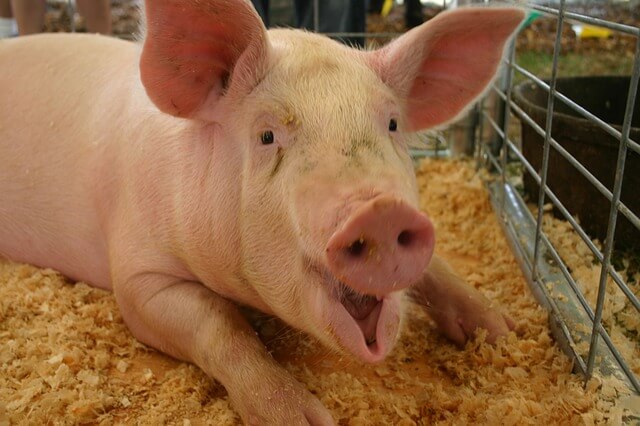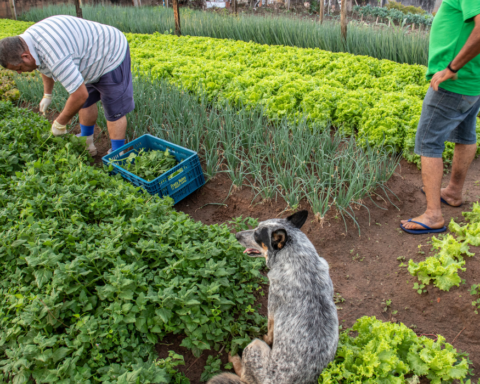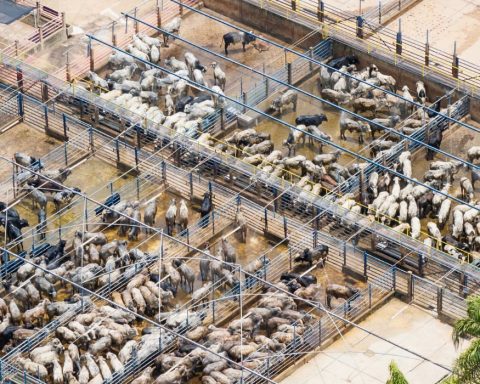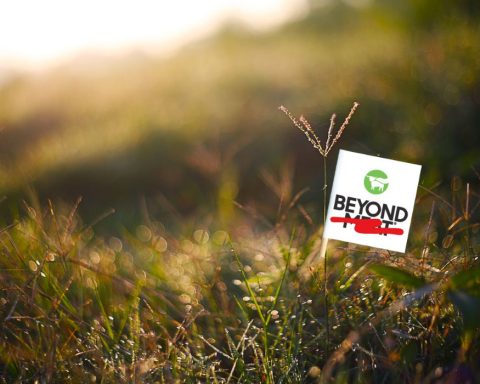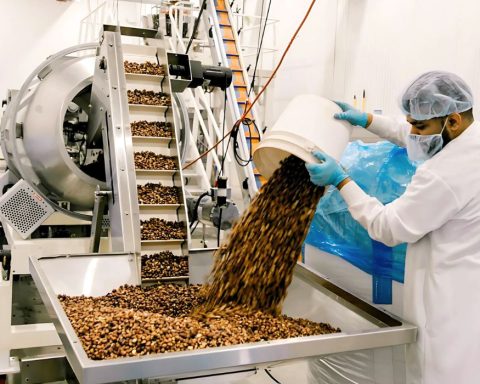Hero: Tyson Foods
Tyson Foods, the second largest pork processor and marketer in the United States, recently issued new animal treatment guidelines to its pork suppliers regarding the treatment of pigs. In a letter sent to hog farmers in January, the company encouraged pork producers to phase out the use of manual blunt force as a method of euthanizing sick and injured piglets. It also asked suppliers to implement more humane gestation crates for pregnant sows, and committed to increasing third-party audits in 2014. A further recommendation was made for farmers to begin installing video cameras at their facilities. “These steps are being taken as part of our ongoing animal well-being program and reflect input we’ve received from our animal well-being advisory panel, customers, farmers and industry experts,” said Tyson spokesperson Gary Mickelson in a statement.
The National Pork Board, a government body in charge of pork promotion, research and consumer information, was quick to challenge a number of Tyson’s recommendations. While not fully rejecting the idea of video monitoring, it did emphasize the significant cost incurred by the farmer. The pork board also defended the practice of manual blunt force, arguing that it complies with American Veterinary Medical Association guidelines. The U.S. Humane Society hailed the announcement as an important step, but called for a set timetable around the termination of gestation crate use.
Tyson found itself under increased pressure to implement reforms after an undercover video shot at one of its pork suppliers last year showed animals being abused and mistreated. In response, Green Century Capital Management, the Humane Society and the United Methodist Church Benefit Board submitted a shareholder resolution to Tyson’s 2014 annual general meeting. It called for a report on the reputational and financial risks brought on by the continued use of gestation crates, stating that “rising concerns over these cages have rapidly shifted the marketplace, with dozens of top global food brands – including Tyson customers – demanding change.” Companies like Costco and McDonalds have responded to consumer pressure by dedicating themselves to the complete elimination of all gestation crates from their American supply chain by 2022. The resolution was withdrawn after Tyson’s January announcement.
Zero: Alcoa
Alcoa and a subsidiary pled guilty in January at a U.S. federal court to bribery charges, and agreed to pay a combined US$384 million to settle illegal payments made in relation to a Bahraini aluminum smelter. The New York-based firm, the third largest producer of aluminum in the world, agreed to pay $161 million to the Securities and Exchange Commission (SEC) for violating the Foreign Corrupt Practices Act (FCPA). Subsidiary Alcoa World Alumina LLC also confessed to violating the FCPA, and agreed to pay the Department of Justice (DOJ) $223 million over the next four years. “Alcoa welcomes the resolution of this legacy legal matter with the U.S. government,” the company said in a press release.
According to court documents, Alcoa World Alumina was asked in 1989 by Bahraini government representatives to hire a specific consultant. Payments were channeled through this individual between 1989 and 2009. Aluminum Bahrain B.S.C. (Alba), considered one of the largest aluminum smelters in the world, is owned by the Bahraini government. Payments of $110 million were distributed as kickbacks to numerous senior government officials.
“Alcoa World Alumina today admits to its involvement in a corrupt international underworld in which a middleman secretly held offshore bank accounts, and shell companies were used to funnel bribes to government officials in order to secure business,” said acting assistant attorney general Mythili Raman in an announcement outlining the case. The $384 million settlement with the DOJ and SEC is the fourth largest of its kind. Alcoa settled a separate civil claim last year after agreeing to pay Alba $85 million.
The Foreign Corrupt Practices Act, passed by Congress in 1977, has served as a powerful tool for combatting bribery involving both American companies and other firms doing business in the United States. The scope of enforcement has grown in recent years after a specialized unit was created within the SEC in 2010 to focus solely on FCPA violations. Eight companies were targeted with enforcement actions last year, including France’s Total S.A., which was fined $398 million for bribing an Iranian government official.
Click here to view our complete Heroes and Zeros series.


